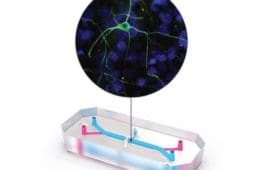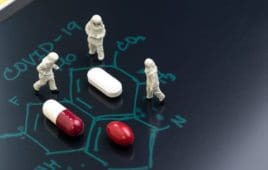One of the first focuses of organ-chip specialist Emulate (Boston) was to reduce the need for animal testing over time. Its technology can simulate tissue-tissue interfaces within organs using human cells. But the potential of the organ chips to yield mechanistic insights for drug discovery and understanding toxicities has become more evident over time. The…
As organs-on-chips advance, their potential for drug discovery grows
Engineered microchips with living human cells have the potential to accelerate drug development and replace animal testing, said Dr. Donald Ingber, the founding director of the Wyss Institute for Biologically Inspired Engineering at Harvard University. The organ-on-a-chip technology could also enable the industry to rethink its business model, Ingber said in a webinar from the…
Wyss Institute lands $16m to repurpose drugs for COVID-19
Lindsay Brownell, Wyss Institute The U.S. Defense Advanced Research Projects Agency (DARPA) has awarded $16 million to Harvard University’s Wyss Institute for Biologically Inspired Engineering to identify and test FDA-approved drugs that could be repurposed to prevent or treat COVID-19. Using its computational drug discovery pipelines and human Organ Chip technologies, the institute has already found multiple…



